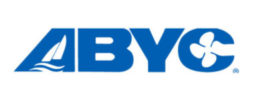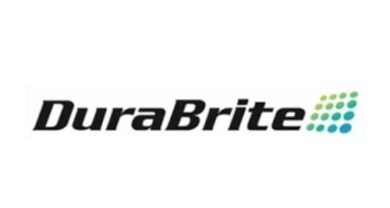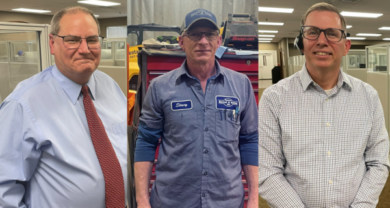Regulator achieves total certification
Scott Chapman admits that his resentment was palpable when he first sat down at the Marine Industry Dealer Certification Program orientation meeting back in the fall of 2006. From his crossed arms to the frown on his face, his body language came across loud and clear. He did not want to be there.
But the attitude didn’t last.
“I went in with an uninformed bad attitude — about the cost, about adding another layer of bureaucracy, about having to deal with stuff that wouldn’t add value,” explains the general manager of Barrier Island Marine, Johns Island, S.C. “But everything they talked about was reasonable and something that we knew we needed to do anyway.”
Chapman gives Regulator Marine full credit for first pushing him to attend the launch workshop and then helping Barrier Island Marine achieve certification.
The boat builder made dealer certification a required standard of performance in its 2007 dealer agreements and insisted that all of its dealers start the process by the end of 2006. By June 2007, all but a handful of Regulator’s dealers had achieved certification, and those who hadn’t were well on their way.
The final Regulator dealer was certified in early May, making the company the first in the industry to have every member of its dealer network certified.
Hands-on help
More than 400 dealers have earned dealer certification since the National Marine Manufacturers Association launched the initiative two years ago.
“Those who are certified really swear by it,” says Thom Dammrich, president of NMMA. “It is helping them deliver a better customer experience, achieve higher customer satisfaction and improve their business.”
That is precisely why Regulator got behind the program early on.
“We believed that certification of the entire dealer network would offer Regulator and its dealers a competitive advantage,” says Carol Ricketts, the company’s director of sales and marketing.
To help dealers quickly work through challenges along the way, Regulator named Cheryl Williams, its customer service manager, as its in-house liaison for the program. Not only was she there to answer their questions about certification, she also visited many of the dealerships to work one-on-one with them.
Although many of the larger dealerships had at least some of the required processes in place, Williams’ on-site assistance with those who were starting from the ground up made what might have been an otherwise overwhelming situation manageable.
“It was so important for Cheryl to be on the frontlines explaining that certification wasn’t as arduous as it looked,” Ricketts says. “She was instrumental in picking apart the requirements and working with the dealers to set up processes where no processes had been.”
Williams would arrive with guidelines and dealer customized forms in hand. She then sat down with whomever was responsible for each task and walked them through the specific process or procedure.
“When we sliced it into pieces, the burden didn’t fall on any one person, which was especially important for the small dealerships,” Williams said, adding that no dealer had to add staff to handle certification requirements.
Williams’ visits were reinforced by Regulator’s sales reps who kept the importance of dealer certification in front of the dealers during their sales calls.
Regulator also assisted its dealers by picking up all of the $2,495 tab, as well as travel expenses for dealers attending the launch workshop. In addition, dealers will be able to co-op 50 percent of their recertification fees.
Chapman appreciated the financial help as cost was one of his initial concerns with the program, but Williams’ support was even more significant.
“Having her walk through the facility and show us what we needed to do gave us a high level of confidence that we would pass the inspection,” he says. “We knew what to expect.”
Checks and balances
Even with 100-percent certification of its dealer network, Regulator continues to hold its quality requirements in front of its dealers.
As one of Regulator’s eight standards of performance listed in its dealer agreements, certification is part of the quarterly “report card” that the manufacturer sends to its dealer network.
In addition, Williams monitors the NMMA CSI program on a weekly basis, then reviews performance ratings each month with area sales reps who, in turn, work with their dealers. The manufacturer does an internal review of overall trends on a quarterly basis.
Given the manufacturer’s focus on quality, its dealers weren’t surprised that it was the first in the industry to demand that its network all be certified.
“Regulator is committed to continually improving processes and procedures, and when you go up and visit the facility, and look at their commitment level, you can’t help but get excited when you are reciprocating at the dealer level,” says Darren Plymale, general manager of Galati Yacht Sales, Tampa Bay. “They are setting a great example.”
Galati Yacht Sales participated in the dealer certification pilot program and has already been recertified twice.
“It confirmed that we were doing so much right and provided us with a platform to work from and the checks and balances to ensure that we were on the right track,” Plymale says. “It really helped us because it is organized in a proactive rather than reactive manner.”
The dealership’s biggest achievement as a result of certification, says Plymale, is in its CSI rankings. To help ramp up customer follow-up, the dealership instituted an internal customer satisfaction index.
“We now have the boat manufacturer follow-up, the engine manufacturer follow-up and our internal measure, and that is really huge,” Plymale says.
Dealer certification requirements also improved the dealership’s training by providing a benchmark to measure future training against.
“So you take the process mapping, combined with the training, combined with the customer follow-up, combined with the facilities components,”
Plymale explains, “and you have a platform for continuous improvement — and as a result, a better customer experience, which is what it is all about.”
Proven results
Dealer certification is branded in all of Galati’s marketing efforts, from boat show signage to national advertising. Barrier Island Marine hasn’t promoted it as much, although Chapman expects that it will do more as consumer awareness increases.
“The challenge going forward is to add value in the eyes of the customer,” says Ricketts. “We need to communicate to the customer what his expectations should be of a certified dealer.”
Dammrich agrees and says that with the program having crossed the 400 threshold, it is time to increase its visibility among consumers.
“We needed to get to a critical mass first,” Dammrich says. “But I think we are getting to that point now where we can begin to start heavily promoting the certified dealers.”
Although Dammrich acknowledges that dealer certification isn’t for everyone, more and more manufacturers are putting their weight behind it, both by providing financial assistance for dealer certification as well as tying certification to their dealer programs.
Dammrich doesn’t discount dealer skepticism but believes that, as Chapman found out, resistance will diminish when dealers learn more about certification.
“Certification doesn’t tell a dealer how to run his business,” he says. “It gives him tools to run his business better.”
Manufacturers and dealers alike who still might question the benefits of certification can look to Regulator’s steadily increasing CSI numbers and its 2007 CSI Award.
“Once dealer certification was achieved by the majority of our dealerships,” Ricketts explains, “it took us over the 90-percent satisfaction threshold required by the NMMA for the award … and we’ve been improving ever since.”




